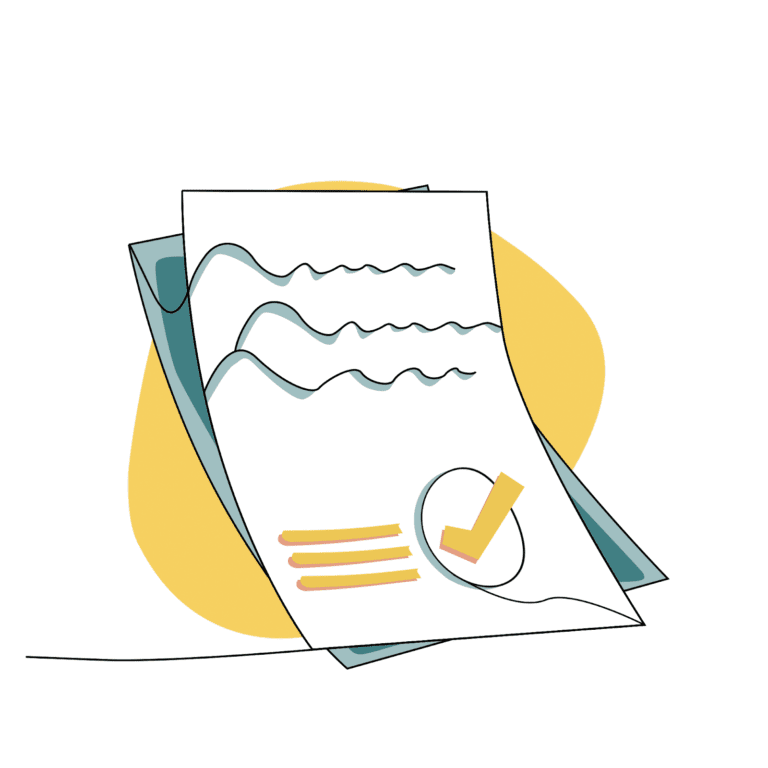Lexi Radcliffe-Hart
When you work on your own – whether freelancing, contracting or starting a new business – it can be hard to find the right rhythm. Too many distractions make it difficult to get the real work done. And not allowing enough time to breathe between projects can lead to burnout and even bad health.
So what do you do when the only person holding you accountable is you? How do you stay on track and avoid spinning out?
Earlier this week, we welcomed Cara de Lange, Mental Health Advocate and Founder of the wellbeing consultancy, Softer Success, to answer all your burning questions around staying focused and motivated as a portfolio professional. Here we share her insights from the event
No one ever said being a portfolio professional would be easy – rewarding, yes, but not necessarily a walk in the park.
On top of landing clients and building up your brand, you’re entirely responsible for your own schedule. You choose how and when you work, which can make it harder to set boundaries and put aside time for your personal wellbeing.
The most common causes of stress for anyone who is self-employed or works independently include:
- losing / not landing a client
- worrying about where your next job will come from
- financial concerns
- taking on too many projects at the same time
- feelings of isolation
- combating imposter syndrome
- staring at a screen for too long without breaks.
The first step is remembering that things won’t always be difficult. The life of a portfolio professional is full of ebbs and flows. Some months will be busy, some will be quiet. And learning how to establish a clear routine and look after your wellbeing will do wonders for keeping you focused and energised.

If you’re starting to feel a bit overwhelmed by the challenges of working independently, there are several easy ways to get back on track and keep your mind fighting fit. Here are just a few for you to try out:
The average human attention span is roughly 90–120 minutes. Anything more than that, and we find our minds start to wander. That’s because our brains operate according to an Ultradian Cycle, which lasts about an hour and a half before you start to get tired.

When you practice deep working, you spend the bulk of your peak performance time diving into a project without any distractions. Plan ahead and set aside one to two hours where you put your phone on airplane mode and turn on your out of office. That way, you can focus completely on one project then reward yourself with a solid 15–20 minutes of healing response time before you start on your next task.
Of course, it doesn’t always have to be a full 90 minutes. Some people find the Pomodoro Technique to be especially effective, where you separate your day into 25-minute chunks, with five minute breaks in between.

When things are hectic, we often forget to slow down and make time for ourselves. We plan the way we work, but not the way we experience joy. And that can mean neglecting the things that make us happy.
Did you know that joy actually boosts your immune system? Studies have shown that joyful people are less likely to have heart attacks, have better blood pressure, and even experience lower levels of cholesterol. It literally adds years to your life.
When you build your schedule with joy in mind, you create a more balanced working life. That’s because joy is a key element for combating the stress hormone cortisol. The more happiness you experience, the higher your oxytocin levels are, meaning less likelihood of depression or anxiety. So don’t forget to do the things you love – spend time with your family, listen to more music, be creative and artistic. It will go a long way, we promise.
Writing a future script is a great way to rewire your brain when things start to feel a bit chaotic. Busy periods can damage feelings of control, which is why it’s helpful to reframe things by looking at what you can reasonably accomplish in the coming months or years.
Think of this as an exercise in positive affirmations. It’s simply a detailed list of how you want things to go in the future, allowing you to see what’s possible when you fear something may not be achievable. Are you worried about landing enough business in your first year? Grab a slip of paper and write down something along the lines of:
“I’m so glad I got through the first half of 2021 feeling peaceful and calm, landing 10 clients and launching a beautiful new website that helped me attract more business.”
Then date it and sign it for some point in the future. Anytime you feel stressed or overwhelmed, just check this to remind yourself that this sort of future is entirely possible.

Think back to all the times you powered through a project, ignoring the back aches and tired eyes for the sake of hitting a deadline. Yes, getting things done fast means more time to work on other projects. But it also means greater physical and mental strain.
That’s why practicing micro wellness is so vital to staying motivated and productive. All you need is several 1–5 minute periods throughout the day where you step away from the screen and reconnect with yourself.
Here are a few short exercises Cara recommends for the next time you’re feeling stressed:
- The blinking exercise – Turn away from your screen and stare at a fixed point in the room. Keeping your head as still as possible, look to the left and blink ten times. Then look to the right and do the same. Repeat for one minute.
- Deep breathing – Take several deep breaths, and we mean truly deep breaths, repeating “let” every time you breath in and “go” every time you breath out.
- The full body shake – Are your muscles starting to feel a bit tight? Shaking your body for a full minute will help release any pent up trauma or stress you might be feeling.
It’s very easy for our daily routines to feel like chores. When you blend your living habits with your working habits, you lose out on enjoying those little moments in the day that are just for you. That’s why it’s important to turn those routines into uplifting rituals.
Take, for example, your morning coffee. How can you make the first cup of the day a more joyful experience? Maybe it’s about buying yourself a special mug and drinking your coffee slowly, taking in every piping hot sip before you even think about work.

Or maybe you prefer to reframe your morning email routine by adding some uplifting music. You’d be amazed by how much that changes your outlook and motivation for the rest of the day.
Things like rejection and financial strain can get us down. But it’s about how you react in these circumstances that sets you up for better productivity.
If you find yourself struggling, try reframing the situation. What happened that impacted your focus? And what can you learn from that experience? You’d be surprised by how many of us have been through the same learning curves – so don’t be scared to reach out to the community when you need a bit of advice.
And don’t forget to set boundaries. We cannot stress how important the separation between work and home life truly is. If you’re feeling overwhelmed by work or even the outside world, try limiting your screen time or social media use. The less information overload you experience, the calmer your mind will be and the more focused you will become.
For more information on focus and motivation, you can check out Cara’s full Q&A or learn about her journey on our PortfolioCast podcast series. And post in the community if you have any more questions. We’re here to support and learn from each other – it’s the best way to grow and develop in your portfolio career.
Think this sounds like the right path for you? Come along to our monthly Community Welcome Call for new members to find out what a portfolio career could look like and how The Portfolio Collective can help you take those first steps towards professional success – and don’t forget to connect with our community!





2 responses to “How to keep a clear focus and stay motivated”
Thanks @caradelange for your time on Tuesday evening – was a great event!
For those of you who missed our session on Tuesday, this is for you! @rebe and @steven-s-reader-8 – think you were after this!